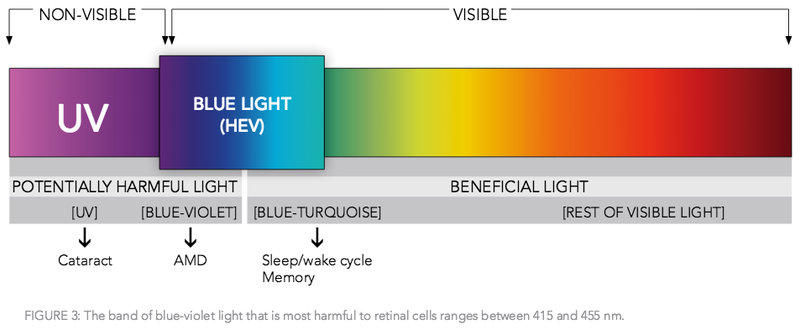Staring at computers at night is frying your brain. Here’s one easy fix.
If you are a regular Vox reader, chances are you spend a lot of time looking at LED screens — on your phone, tablet, laptop, desktop, phablet, smartwatch, fitness device, smart appliance, Google Glass, or whatnot. According to the Vision Council, about a third of my generation (X) spends at least nine hours a day on digital devices. Millennials are even worse (in this as in everything).
In the somewhat smaller tribe of people who read and write stuff on the internet for a living, I bet 10 to 12 hours a day isn’t unusual. I’m sure I’ve done it.
It’s not good for our eyes. LED screens emit a great deal of blue light, and according to the Vision Council, “cumulative and constant exposure to blue light can damage retinal cells.”
/cdn0.vox-cdn.com/uploads/chorus_asset/file/4220287/vc-digital-eye-strain-blue-light.png)
What’s more, even the non-harmful portion of blue light sends a signal to our brains that it is daytime, revving up our heart rate and alertness. It mimics the sun, basically. You do not want to be lying in bed at night, having brushed your teeth and set your alarm, staring into the sun. It’s not a recipe for good sleep.
Exposure to blue light at night has even been linked to cancer, diabetes, heart disease, and obesity. (It is not entirely clear why; it likely has to do with suppressing the secretion of melatonin.)
There are all sorts of solutions to the blue-light problem. The most obvious is just not to look at screens for two or three hours before you go to bed. Unfortunately, a substantial proportion of my professional work gets done in the two to three hours before I go to bed, so that’s not really an option for me.
Hardware solutions include adhesive screen protectors that filter blue light and even orange goggles, if you want to look extra cool after the sun goes down.
But by far the easiest step is just to install f.lux. It’s free for Windows, Mac, and iPhones/iPads**. (There’s not yet a version for Android, but there are plenty of alternatives; I use one called CF.lumen.)
These apps adjust the light from your screen according to time of day. (Or you can customize them in all sorts of ways.) In the evening, f.lux will filter out your screen’s blue light to eliminate the staring-into-the-sun effect. It will calm your brain.
I’ve been using it longer than I can remember, and I can’t recall a piece of software that had more of an immediate, positive impact on my life. The only time I ever see my “normal” screen is when I’m updating f.lux, and it’s horrific.

